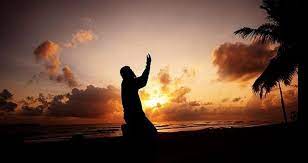How Muslims Celebrate Ramadan, the Month of Fasting
Ramadan is a special time for Muslims around the world. It is the ninth month of the Islamic lunar calendar, and it is considered to be the most sacred and blessed month. During Ramadan, Muslims fast from dawn to sunset, abstain from sinful actions and thoughts, and increase their acts of worship and charity. Ramadan is also a time of reflection, gratitude, and community.
The significance of Ramadan lies in the fact that it was the month in which the first verses of the Quran, the holy book of Islam, were revealed to Prophet Muhammad (peace be upon him) by the angel Gabriel. Muslims believe that the Quran contains the exact words of God and His guidance for humanity. Therefore, Ramadan is a celebration of the Quran and its message.
Fasting is one of the five pillars of Islam, which are the basic acts of worship that every Muslim should perform. Fasting during Ramadan is obligatory for all adult Muslims who are not sick, traveling, pregnant, breastfeeding, menstruating, or diabetic. Fasting means not eating or drinking anything, including water, from dawn until sunset. It also means refraining from smoking, sexual relations, lying, gossiping, swearing, and other bad habits.
Fasting has many benefits and wisdoms. It teaches Muslims self-control, discipline, patience, and empathy for the poor and hungry. It also purifies the body and soul from impurities and sins. Fasting is a way of expressing gratitude to God for His blessings and mercy. It is also a way of seeking His forgiveness and closeness.
Muslims have two main meals during Ramadan: suhur and iftar. Suhur is the pre-dawn meal that Muslims eat before starting their fast. It should be light and nutritious, and it should include plenty of water to hydrate the body. Iftar is the meal that Muslims eat after breaking their fast at sunset. It usually begins with dates and water, following the tradition of Prophet Muhammad (peace be upon him). Then, Muslims enjoy a variety of dishes, fruits, desserts, and drinks. Iftar is often shared with family and friends, or with neighbors and strangers at mosques and community centers.
Another important aspect of Ramadan is prayer. Muslims pray five times a day throughout the year, but during Ramadan they perform an extra prayer at night called tarawih. Tarawih consists of reciting long portions of the Quran in congregation, usually at mosques. The goal is to complete the recitation of the entire Quran by the end of Ramadan. Some Muslims also spend part of the night in individual worship, reading the Quran, making supplications, or meditating.
One of the most special nights of Ramadan is called Laylat al-Qadr, or the Night of Power. It is believed to be the night when the first revelation of the Quran occurred. It is also believed to be a night when God’s mercy and blessings are abundant, and when prayers are more likely to be answered. Muslims seek this night in the last ten nights of Ramadan, especially in the odd-numbered nights. They spend this night in worship, prayer, and supplication.
Ramadan ends with a joyous celebration called Eid al-Fitr, or the Festival of Breaking the Fast. It is one of the two major festivals in Islam, along with Eid al-Adha, or the Festival of Sacrifice. Eid al-Fitr falls on the first day of Shawwal, the tenth month of the Islamic calendar. On this day, Muslims perform a special prayer in the morning, exchange greetings and gifts, visit relatives and friends, and enjoy festive meals and activities.




